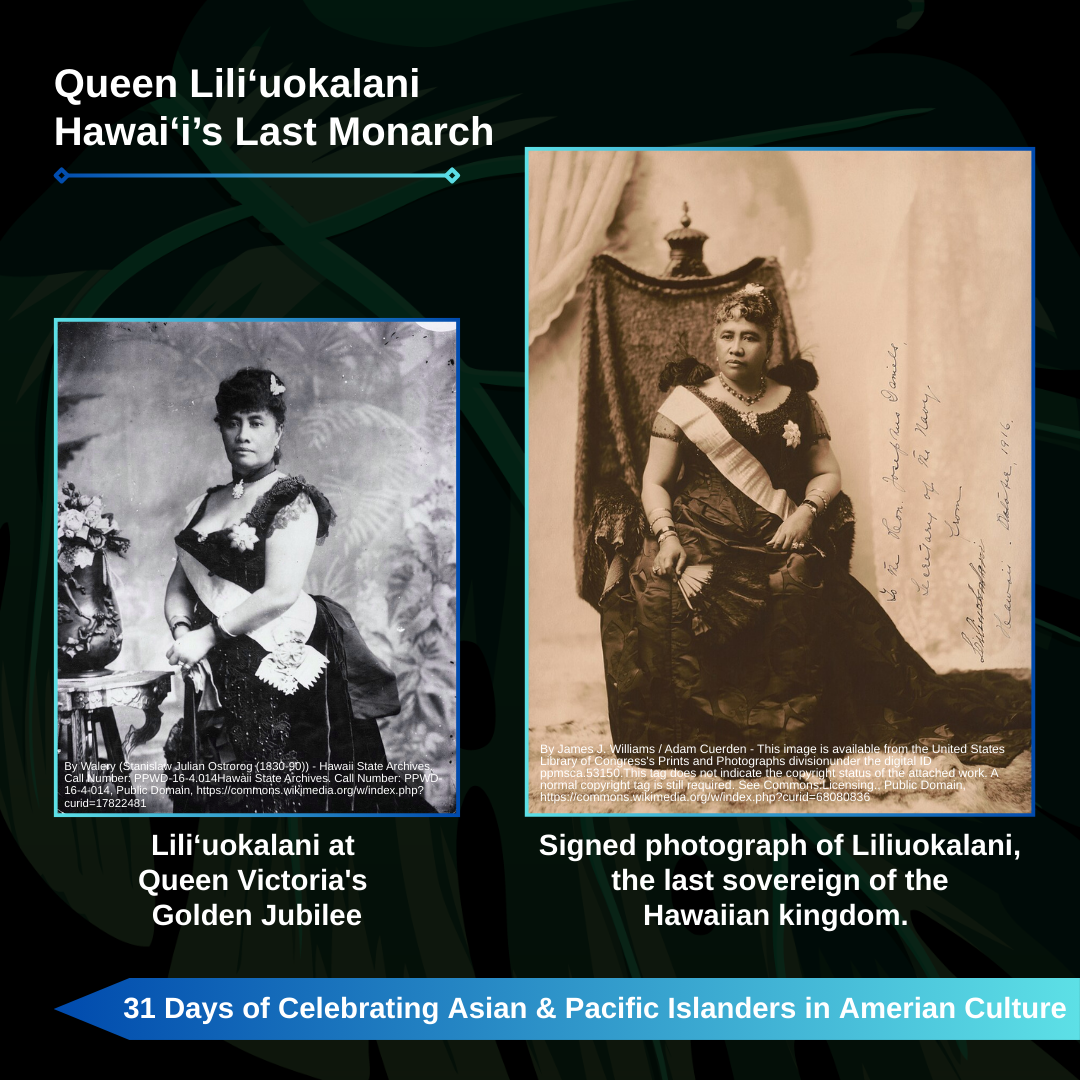Day 9. Queen Liliʻuokalani Hawai‘i’s Last Monarch.

Queen Liliʻuokalani, the final reigning monarch of the Hawaiian Kingdom, was more than a ruler — she was a poet, composer, and fierce advocate for her people’s sovereignty and dignity. Her life is a story of resilience in the face of colonial injustice, and her legacy continues to inspire Native Hawaiian movements for self-determination, cultural revival, and land protection.
“You must remember never to cease to act because you fear you may fail.”
— Queen Liliʻuokalani
The Last Queen of Hawaiʻi
Born in 1838, Liliʻuokalani ascended to the throne in 1891, determined to protect the Hawaiian Kingdom from increasing American economic and military influence. She sought to restore the power of the Hawaiian monarchy and return control of the land to her people, who had seen their rights steadily eroded by foreign businessmen and settlers.
In 1893, a group of American and European settlers — backed by the US military — overthrew the Hawaiian government. Liliʻuokalani was imprisoned in her own palace and forced to abdicate, marking the beginning of US annexation and occupation.
A Monarch, A Poet, A Composer
Despite the trauma of overthrow, Queen Liliʻuokalani never stopped using her voice. She was a gifted composer and poet, creating songs that captured the deep love and sorrow of her people. Her most famous composition, “Aloha ʻOe” (Farewell to Thee), has become an anthem of both tender parting and enduring resistance.
Her music remains a treasured part of Hawaiian culture, carrying the spirit of her leadership and the longing for justice.
A Legacy of Sovereignty
Queen Liliʻuokalani’s life and leadership continue to fuel contemporary Native Hawaiian sovereignty and land protection movements, including:
The Protect Mauna Kea movement, resisting the construction of a telescope on a sacred mountain
Ongoing campaigns to reclaim stolen Hawaiian land and restore cultural and language practices
Advocacy for the legal and moral recognition of the Hawaiian Kingdom’s illegal overthrow.
Her example reminds us that history isn’t dead — it lives on in the ongoing fight for Indigenous rights and cultural dignity.
“I could not turn back time, but I could raise the voice of my people.”
— Queen Liliʻuokalani
Resources to Learn More
Want to honor Queen Liliʻuokalani’s story and legacy? Here’s where to begin:
📖 Hawai‘i’s Story, by Hawai‘i’s Queen — Liliʻuokalani’s own memoir, offering a firsthand account of the overthrow
🎶 Aloha ʻOe and other songs, composed by Liliʻuokalani — available on streaming platforms and through the Bishop Museum archives
📺 The US vs Queen Liliʻuokalani (PBS, 2022) — a documentary exploring the overthrow of the Hawaiian Kingdom
🌋 Protect Mauna Kea — learn about current Native Hawaiian-led efforts for sovereignty and land protection
Why Queen Liliʻuokalani Matters
Queen Liliʻuokalani’s courage in the face of colonial violence reminds us that sovereignty, dignity, and cultural identity matter — then and now. Her music, writing, and example echo through generations, inspiring new leaders, activists, and artists working to reclaim Native Hawaiian lands, culture, and pride.
Join the Conversation
Celebrate Queen Liliʻuokalani’s life by sharing her story, learning about Native Hawaiian history, and standing with current movements for justice.
Hashtags: #31DaysOfAPIHeritage #QueenLiliuokalani #HawaiianSovereignty #ProtectMaunaKea #AlohaOe #IndigenousResistance #NativeHawaiianVoices #DecolonizeHawaii #IslandJustice #PacificIslanderPride
Asian and Pacific Islander heritage is not monolithic. It stretches across dozens of nations, languages, histories, and spiritual traditions. In honoring these figures, we also honor the beautiful plurality of cultures, family traditions, and lived experiences that make up API communities in America.
For more information and access to other events, sign our Guestbook!
Discover more from SepulvedaUU
Subscribe to get the latest posts sent to your email.
